|
My fiancé and I have been planning our wedding since we got engaged in February 2023, and we are soon approaching our June wedding. We are so excited to begin our lives together and get married! As we were making important decisions for our wedding, we knew that it was important for us to have a Catholic ceremony in a church. We are both very active in our faith and felt that our wedding would not be complete if we chose to have a secular ceremony. We have found, through our wedding preparation process, that our faith has grown together. As we are planning our wedding, we have begun traditions that we would like to carry onto our own family one day. For example, always saying Grace before meals, making sure to attend weekly Mass, and being more vocal about our faith and our beliefs. We did most of these things before we got engaged, but now, it feels like these small tasks are the building blocks for the foundation of our family. In the Archdiocese of Washington, a couple must attend a marriage preparation course that is held by the Archdiocese. To be honest, we were not exactly thrilled to have to attend, as we are fairly active Catholics, and we had been dating for close to five years before getting engaged. We felt that we had all the difficult conversations before we got engaged, such as finances, living situations, and children. But, we knew that it was a task that we had to complete, so we obliged. We spent two full days in these sessions, and while there were a handful of sessions that felt less applicable or engaging to us, we did end up enjoying the course. As both of us lost all our grandparents before the age of 25, it was really great to hear from the older couples on their experience through their own marriages. It is not something that I would have thought to ask my grandparents before they passed when I was in high school, so hearing from the older perspectives was a joy. We loved hearing about how they have made their faith a priority throughout their lives, during good times and bad, and how their faith is the foundation of what makes their marriage so successful. It also made me think “Wow, that is (God willing) going to be us someday; what do we want our marriage to look like now, at the beginning, so we can get to this point someday?” Another part of our marriage preparation has been completing the FOCCUS Survey. Both of us filled out the questionnaire separately, and in a meeting with our priest, we went over the responses to see where we agreed and disagreed. It was insightful as we really had to think about our partner and about their qualities - good and bad. We did agree on a lot of the same things, and those where we disagreed, we were able to discuss our viewpoints and come to an understanding as to why we answered one way or another. It was a good affirmation of our relationship and values, and that while similar, we can have different opinions, but as long as we are in understanding of them, and respect each other, it is good to think differently. We have enjoyed our marriage preparation process and really have felt that it has brought us closer together in our relationship with each other, and also in our relationship with the Lord. As we are in the final stretch before our wedding, please pray for my fiancé and I as we enter into our marriage covenant together!
0 Comments
Growing up in the 90’s meant a lot of time with family movie nights, being ridiculously goofy before social media was a thing, and quoting some classic cartoons. There is one that stands out: Peanuts. Some of the characters include Charlie Brown, Sally, Linus, Lucy, and, of course, there is Schroeder. Although those are some of my favorites, the cast was big and the movies and episodes covered a variety of topics and seasonal fun for all. We’d sometimes quote various parts (as one does) in our regular conversations, like when Charlie Brown says, “Good Grief” anytime he is dismayed, or when Sally asks for gifts for Christmas, “Just send money, how about 10s and 20s?” The music, written by Vincent Anthony Guaraldi, is catchy and helps tell a story, plus the character that plays the piano, Schroeder, provides the friends a chance to dance to the theme song. My brother learned that song when we were kids and he played it every single chance he had - just like his favorite character Schroeder. You see, Jon Kirby was the type of musical genius that, once he learned to play piano, could hear a song and teach himself to play it. He read music, saw music, and felt music, and Peanuts songs were some of his favorites to play. Later, when he began writing music of his own, he penned something so whimsical, that it required 21 hands to play it. Every pianist who had the honor of playing it told him how fun it was to play something so silly yet jazzy, and I am certain that was some homage to Guaraldi. Tragically, my brother passed away in November of 2023 from an unexpected heart condition, and I have been grieving his loss every day since then. I am coming to terms with accepting it more as time goes on and I am seeking help for healing, but it has been hard and sad and terrible to endure. Someone full of so much life to live, suddenly gone and taken.
Grief is a weird thing, it makes people act differently and no one quite knows how to do it “right.” Am I grieving enough? Is my grieving showy? Should I take time to spend on how I am feeling or do I keep pushing through? Do I talk about it or not talk about it? How can praying help and if it helps, how will I know? What is up and what is down, and why do people care about ridiculous things when my loved one is gone? These are all thoughts and feelings one might have, and when you peel away all these questions, it reveals the sad human who has been met with an atrocious reality. There has been a tragic loss and we are sad, angry, anxious, scared, heartbroken, and scarred from it. Our mind tries to make sense of it, but we cannot. Our hearts seek answers and we are often left without any. Our bodies are here while our focus is stuck on this tragic loss and it is hard to turn our fixated selves to other things. For me in this time of grief, I have been letting myself cry whenever I need to. I have been reaching out to family and friends to talk and share stories, but where do I go from here? A friend of mine Sarah Frances, who has had her share of grief in the past decade, lost both of her parents and still maintains a life of joy and fun and work and remembering. She is inspiring. I asked what advice she had for me and I thought her words were profound: “When you lose someone it is never the right time. But one of the greatest connections that we have to every single person is that we all go through this at some point and [someone] knows almost exactly what you are feeling.” She went on to say, “It does not matter if you lose someone you love, hate, tolerate, are related to…loss hurts, but you are not alone.” You are not alone. She is right that I am not alone, even if the pain feels like no one else could understand. Some people understand. I have been surrounded by so many loved ones and friends and acquaintances who have checked in and offered support. I have heard from people who I have never met, but who knew Jon. It’s been humbling and lovely, but painful and heartbreaking too. The community that has surrounded not just me, but my dad and my sisters, and his wife and her family, is just so full of love and I cry thinking about how grateful I am for all of it. The love from others is what got me through some days, like my husband who lets me just sob some nights and I know he will always hear me out when I am having a hard time with it, comforting me with a warm embrace. Even my little 4 year old has now experienced grief, and keeps me moving forward while remembering happy times. It is all hard, but it is good to have a village to go through it with. Isaiah 41:10 says, “So do not fear, for I am with you; do not be dismayed, for I am your God. I will strengthen you and help you; I will uphold you with my righteous right hand.” This connects it all for me. I have felt Christ in so many people. I feel strengthened in knowing that I am not alone in not only my grief, but my grieving journey, my faith journey, and the people walking alongside me in life. I am seeking God and finding God in the people and the kindness, and to me, this feels like “good grief” if that could be a thing. Life is hard. We can do it. Good grief! “Because children have abounding vitality, because they are in spirit fierce and free, therefore they want things repeated and unchanged. They always say, "Do it again"; and the grown-up person does it again until he is nearly dead. For grown-up people are not strong enough to exult in monotony. But perhaps God is strong enough to exult in monotony. It is possible that God says every morning, "Do it again" to the sun; and every evening, "Do it again" to the moon. It may not be automatic necessity that makes all daisies alike; it may be that God makes every daisy separately, but has never got tired of making them. It may be that He has the eternal appetite of infancy; for we have sinned and grown old, and our Father is younger than we.” G.K. Chesterton, Orthodoxy Today on the feast day of St. Therese of Lisieux, affectionately known as the Little Flower, I turn to my sons’ example in accepting everything completely from God. My almost two-year-old is predictable: he loves blueberries, watching the garbage truck pick up trash on Mondays and Fridays, and playing in the backyard. Recently he has taken to playing with a giant cardboard box that my husband engineered into a “cottage” with a window and a workable door. The joy and excitement he exudes each morning playing with his cardboard cottage didn’t strike me at first. But after a few rounds of him serving me imaginary chocolate milk and tea from his little abode, I realized that this joy, the same joy and freedom he has when running ferociously to the front of the house to see the garbage being picked up, is the joy and freedom St. Therese of Lisieux wrote about and emulated in her life. “To remain a child before God means to recognize our nothingness, to expect everything from God. It is not to become discouraged over our failings, for our children fall often, but they themselves are too little to hurt themselves very much.” St. Therese of Lisieux Therese gives us the example of radical abandonment to the Father’s will. When we take a snapshot of her life—where she lived most of her life, whom she met, what accolades she was awarded—we see that her life was not much in worldly standards. And yet, Therese is honored with the title “Doctor of the Church.” Her writings and her example of charity beckon us to take a closer look at this simple and great saint. While Saint Therese is a heavily pestered saint when it comes to intercession (as her intercession is known to be great) and her quotes are seen often, today let us take after her childlikeness and see the world through her eyes with childlike abandonment to God. I encourage you to find five beautiful things in the mundane of your day that your eye has not yet “truly” seen before. Thank and praise God for the life He has given you, in all its sufferings and joys, and ask for St. Therese’s intercession in seeing the beauty in the mundane. For more resources on Marriage and Family, please click here. **This blog was originally published on October 1, 2020.**
Many of my fondest memories were created at a family meal around a table. Relaxed Sunday dinners when no one had to rush off for work or commitments, picnics at the park in the great outdoors, holiday meals with all the finery, birthday celebrations, and nightly dinners where we all paused amidst our busy schedules were the catalyst to so many good and wonderful things in my life. Whatever the occasion, the common thread was that our family intentionally gathered together, prayed, ate, and shared precious time with each other. It taught me the importance of being a family unit (both immediate and extended), and it revealed to me the richness of each person’s part in the building of a family as God intended it. The way we are linked together with our combined unique talents and personalities creates a beautiful and diverse whole unit. The stories shared, the laughter, the lessons learned are where I came to understand the “heart” of family. The communion of our rich and diverse individual lives seated at table together strengthens and nourishes us much more than the food we partake of. Our bodies and our spirits are nourished at these meals.
It is by no accident or random act that Jesus gathered His family and apostles around the table together. It was a calling together in a very basic physical manner—to nurture the body and the soul of each person there. The Communion Jesus instituted is the very essence by which He feeds us with what we need to carry out our mission as Christians, to share the Gospel message in our words and deeds. His Body, Blood, Soul, and Divinity is the complete sacrifice given to us each and every time we approach His table at Mass. The more we gather there, the more we are nourished with grace and wisdom, strength and virtue to equip us to enter the daily fray and to live the Christian life—to be bearers of God’s truth and love. Following His example, a family learns and grows from intentionally sharing meals at table together. All that is involved in this gathering teaches and molds us. The food preparation, the setting of the table, giving thanks in prayer, sharing the food, the conversation exchanged, and the cleaning up are simple acts in themselves, but done together creates a unity and rhythm that cultivates the value of each person in the unit. As a child, I was privileged to grow up in a home where family meals were an integral part of our daily routine. I was also raised to recognize the importance of attending Holy Mass together, and it was a special time of week for our family. The Rev. Fulton J. Sheen so eloquently said: “The greatest love story of all time is contained in a tiny white host.” This is how Jesus feeds us—yesterday, today, and tomorrow. He made the profoundly complete meal so simple for us. All we need to do is to gather at His table. With each year, I come to realize how paramount it is to gather at the altar, to be present at the table of our Lord, in communion with my brothers and sisters, and to receive the Eucharist together—our Bread of Life! Through this sharing with our Lord and Savior, our Creator and Redeemer, our love stories grow deep. From this fullness I am able to love and serve my husband and children more perfectly, treat my neighbor with care and compassion, forgive those who hurt me more easily, give more, and want less. All goodness and mercy, tenderness and courage come from the meal at the table of the Lord. It has become an essential part of each day for me, and the blessings abound from it. I am grateful for the freedom we have to be able to attend Mass daily and to receive the divine sustenance needed to live in this fractured world. Receiving Jesus—His Body, Blood, Soul, and Divinity—is the ultimate gift. It helps me to be a better person and the ripple effect going out to others is endless. God’s design is so perfect! I encourage each of you to reflect on your personal spiritual love story and invite you to join your community at the table of the Lord as often as possible to be strengthened in what is necessary to bring about goodness in our lives. This love of God can heal this broken and divided world, and it is accomplished by God dwelling in and working through us—one person loving another. And a great place to practice is around the family table! As Mother Teresa told us: “If you want to change the world, go home and love your family.” When I was pregnant with my first child, who is now eight, so many people talked to me about how much my life would change when the child was born. At the time, I thought that was mostly related to my day-to-day life: changing diapers, figuring out feeding schedules, coordinating childcare, managing doctor appointments, buying clothes and school supplies, and driving from soccer practice to Girl Scout meetings to gymnastics. While this is definitely part of it, what I did not fully understand is how profoundly my internal life would change—the incredible amount of love and devotion that would flow out of me on a daily basis to these two little humans. It is such a gift to be their mother and to have a front row seat to their lives. My daughters started back at school last week. It is exciting that they can be fully back in-person and we can somewhat go back to how things were before the pandemic hit. I pick up both girls at the end of the day. In the past, when I would walk into the classroom, they would run towards me with arms wide open and a giant smile on their faces. This has always been the best part of my day: seeing the love and devotion they have for me so clearly as they bound through the classroom or playground once they catch sight of me. As they get older, this changes. Last week, neither of them ran towards me; there was no smile or open arms. I was disrupting prime play time or the art project that would not be completed because it was time to go. Even though it was a small act, and I know of their love and devotion to me, it was such a punch to the gut for me. I know there will be more and more moments like this as they get older. No one can fully prepare you for when that happens. It just happens. Today, as we celebrate the Nativity of the Blessed Virgin Mary, I cannot help but think about both St. Anne and Mary as mothers. I think about the love and devotion they poured out to their new babies: keeping them safe and happy. I also think about those moments of punches to the gut that each of them felt when their children were small: how the love and devotion that poured out of them was slowly sucked dry as their children grew up and were not as reliant on them for all of the basic needs of life. For me, it is in these small but challenging moments that I need the support of the Blessed Mother, the supreme example of motherhood. Her grace and strength provide such an excellent example for mothers as we go through the day-to-day of life—the ups and downs, the challenges and the joys, the moments of light, and the punches to the gut. I love the line in Luke’s Gospel of Jesus’ birth when he writes: “And Mary kept all these things, reflecting on them in her heart” (Lk 2:19). It is almost as if she took a mental picture of everything that was happening, so she could remember back to that particular moment when she needed to. I try to do this in those moments of joy we experience as a family, so I can remember them when the girls are challenging me directly or indirectly, as was the case last week. We need to have moments of challenge to make us appreciate the moments of light and joy.
No banquet in Scripture would be complete without wine. More than a drink, it is a symbol of hospitality and festive joy, the fruit of the vine and work of human hands, which gladdens the heart (cf Psalm 104:15).
Imagine, then, running out of wine during a wedding feast! If Jesus had not intervened and supplied wine when it ran short, what would the newlyweds at Cana (John 2:1-11) have done? As I look back on the ten years of marriage my husband and I celebrate today, this image of Jesus coming to the aid of the bride and groom with the gift of good wine seems especially fitting. Overjoyed at finally getting to be together after two years of long-distance dating, our first year of marriage was exciting and fun, filled with adventure and plenty of questions about what the next year and beyond might bring. In our second year of marriage, my husband began his studies for a doctoral degree, we moved across the country back to our college town, and we bought our first home. The wine of gladness was plentiful in our first years of marriage. In the years that followed, we experienced many other joys, but not without some very real challenges. We came to know the heartache of infertility, the joys and hardships of parenthood, the stress of financial uncertainty, yet another cross-country move, the sorrow of pregnancy loss, the isolation and anxiety of the pandemic, and the strain of evolving job responsibilities. In many moments of difficulty, I wondered about our supply of wine. Was it enough? If our marriage depended solely on my abilities and choices, surely the wine would have run out long ago. Thankfully, not only do I have an incredible and selfless husband, but Christian marriage “is supported by the continuing presence of Christ in the life of the spouses as he pours into their hearts the gift of love through the Holy Spirit” (United States Catholic Catechism for Adults, p. 286). Through all the hardships, Christ has always poured out the grace we needed. When I wondered how we would have the fortitude to endure difficulties, the wisdom to discern a job opportunity, the patience to deal with interrupted sleep, endless laundry, potty training and more, we have had the unfailing support of family and friends and prayer and the sacraments to sustain us. The wine of grace flowed in unexpected moments of forgiveness, kindness, and understanding amid disagreements or miscommunications. I don’t know where it came from sometimes, but it certainly didn’t come from me! When we were first married, I couldn’t have anticipated all that would await us. We came together out of a love and attraction that has been a great gift. We remain together out of a love made firm in Christ. The United States Catholic Catechism for Adults describes how a couple is “challenged to unite their personal love with Christ’s love. Their human love will survive more effectively the cultural challenges they face, as well as the psychological and economic ones, when it is merged with the powerful love of Christ, who wants them to succeed and whose divine grace is ever at their service” (p. 286). As beautiful and wonderful as they are, the excitement and exhilaration of newly wedded bliss is not enough for a lifetime. The choice to love “for better or for worse, for richer or poorer, in sickness and in health” presents itself time and time again, and many times, it is far from easy. With God’s overflowing and abundant grace, the enduring love of marriage is made possible. Without it, the moment a difficulty arises, the wine runs short. Yet, just as Jesus provided the couple at Cana with far superior wine in greater quantities than they could have possibly needed, God has blessed my husband and me in ways that exceed my wildest imaginings. Ten years in, we share a richer, deeper, and wider life in common than when we were first married. I am filled with gratitude for the good wine of joy and fruitfulness we now savor. Though I don’t know what the next ten years will hold, I pray the wine of God’s grace will continue to flow freely! “Laugh and grow strong.” -St. Ignatius It’s 10pm and the limbs are flowing. Arm circles, head bobs, tapping feet. I clean the kitchen counter like Mr. Miyagi – wax on, wax off--and jam out to my favorite song after an exhausting day. The sheer ridiculousness of my dance moves makes me smile. But I don’t care. I realize life doesn’t always need to be taken so seriously. And I think to myself, what a wonderful world. I walk home on a Tuesday evening from the playground with my three children. My four-year-old turns back to look at me only to collide into this older brother. The two fall to the ground, crumpled together like a terrible game of Twister, and an eruption of wailing ensues. The chaos startles my eight-month-old daughter, who decides to join in on the chorus. The sheer ridiculousness of the incident currently occurring on the main avenue of our neighborhood causes me to chuckle. We must look like a pitiful sight to the cars zooming up and down the street. I soothe my daughter and stoop down to hug my boys and offer to race them home. As our limbs fly down the sidewalk, I think to myself, what a wonderful world. I stretch my leg out over the strawberry patch, my daughter strapped closely to my chest, and find myself practically doing the splits in the mud. Thankfully, my shorts are unharmed. And I think to myself, what a wonderful world. What a wonderful world indeed. It’s a sentiment not many might feel while watching the news or scrolling on their social media feeds. In fact, many things have occurred lately in life that evidence the very opposite. I’m not belittling the world’s or my own suffering, nor am I ignoring it or living naively. But lately in my life and in my motherhood, the Lord has given me the gift of a sense of humor. I have been swimming in my sheer helplessness and finding out everything will be okay if I let the Lord be my current. I do not need to have my act together to be infinitely loved and cared for by my heavenly Father. I do not have to bemoan my littleness or earn God’s mercy. I just have to ask Him for help. Every day, I am Peter flailing in the water. All God is asking me to do is to reach back for the hand that’s always been extended. So I reach and then bow down my head to pray: “Dear Lord, please help me not be a nincompoop today.” So much of my life and motherhood is serious business. Sneaking in as many vegetables as possible into my children’s diets. Teaching them how to scrub their teeth diligently. Choosing books and music and television that reflects truth and beauty. Modeling (or attempting to model) virtue. Practicing superhuman patience. Answering and acknowledging 1,000 pieces of information (mainly in the form of random questions) a day. But so much of it is silly and joyful too. Pretending to be a pirate with my sons and collecting buried treasure. Responding to the incessant demand to “get us!!” at the playground and becoming incredibly adept at climbing play structures. Reading books using all the voices. Having dance parties. Ooing and ahhing at their latest insect find or screaming that a fire truck is coming and pointing wildly to where it is. Watching my daughter shove food into her mouth with delightful noises and finding half of it on her lap. Seeing her crawl for the first time. Having a deep conversation with her using babbling noises. I can choose to view my life through so many lenses. But what I’m being reminded of most recently is to choose the lens of the good, true, and beautiful. Of the silly and the miraculous. The lens of joy and gratitude. Why do we take life SO seriously all the time? When did we stop dreaming or doing awkward dance moves in the kitchen by ourselves? When was the last time you laughed until the tears streamed down your cheeks? After having three children, I guess I’ve realized how fleeting it all is. How quickly this growing up business happens without my permission. And so even though motherhood and raising a family are incredibly hard and stretching (re: strawberry patch), I can’t help but pause for a moment and relish this time in all its sheer ridiculousness and glory. Having entered into my third decade of life, I’ve experienced a decent share of hardship, loss, suffering, and death. I’ve attended many funerals, prayed for many sick people, and heard many tragic stories. Lately, it feels as though the accumulation of these events and stories has become stronger and more prevalent. It seems that many people within my network are experiencing the loss of friends or family members: the death of a parent, young people battling cancer, tragic childhood accidents. Tragedy and losses like this have re-opened my eyes to the reality of how fleeting life is and helping me more deeply appreciate the hidden blessings all around. I’ve often mused recently that my biggest issue these days is likely poop-related or has to do with a lack of sharing. My problems can generally be solved with hugs, eye contact, a fresh diaper, sleep, or a snack. The checkerboard of crumbs on my dining room floor that normally seems like a mountain now feels surmountable. I stop and thank God that these are my issues and annoyances. So I dance, mostly by myself, in the kitchen. And I think to myself, what a wonderful world.
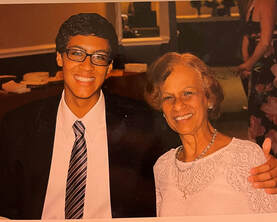
“Let us not lose the memory preserved by the elderly, for we are children of that history, and without roots, we will wither. They protected us as we grew, and now it is up to us to protect their lives, to alleviate their difficulties, to attend to their needs and to ensure that they are helped in daily life and not feel alone.” The Holy Father gave us these words last year on the inaugural World Day for Grandparents and the Elderly, inviting us to care for and journey with the elderly people we know. As our grandparents, parents, and older relatives grow older and approach the end of their lives, we take on the responsibility of caring for those who cared for us and raised us.
While there is justice in this act of caring for our elderly, it is not something cold and calculated (like our understanding of legal justice). It is founded upon the unconditional love of God the Father. Our grandparents, parents, and older relatives raised us, provided for us, and loved us without counting the cost, without expecting anything in return. In their old age, we as their children and once dependents return love for love as they now depend on us. We are called to care and provide for them and to love them unconditionally. My grandmother was pivotal in the upbringing of my sisters and I as she helped to care for us when we were young. She taught us to pray and to love others through both the example of her gentleness and sweetness and through her instructions and corrections. She would give us treats, money, and gifts all the time. She would take us out, both individually and as a group, on little dates to the movies and for lunch. I have very fond memories of volunteering at tennis tournaments with her, and an entire summer break we spent together housesitting for my great uncle in rural Northwest Virginia. When I was in seminary, she would send me gifts and notes, addressing me on the phone or in writing as “our favorite seminarian.” Signs of my grandmother’s disease that accelerated her aging came in years prior to 2020. Things took a turn for the worse that year–both before and after she was diagnosed. My mother made the difficult but beautiful decision to keep her at our family home and provide for her, and we have continued to do so. As things progressively become more difficult and she seems to be near the end, she is entirely dependent on others for her basic human needs. I have watched my mom and older sister grow in love by providing for her daily. I have been given the same opportunity when I moved back home. Although my grandmother is sometimes still reluctant to receive help and cannot always be fully present or say thank you, we give her our love unconditionally, and we know in various ways that she is grateful for our time and attention. If you have someone in your life who is elderly, especially a grandparent, parent, or relative that helped to raise you, I invite you to recognize the importance of remaining connected to them. Provide for them in the ways you are able to and give them the gift of your time and attention, regularly and intentionally. The care which our grandparents, parents, and relatives gave us in our upbringing warrants our care in return, especially when they are in need. They made a sacrifice and gift of themselves to us when we were dependent on them, and we are called to do the same. As Pope Francis reminds us, “May we never regret that we were insufficiently attentive to those who loved us and gave us life.” Watching my parents and in-laws become grandparents has been one of the greatest joys that has accompanied my having nieces and nephews and becoming a parent. I appreciate the relationship I have with my parents and in-laws in many ways, but I truly delight in seeing the relationship they have with my 3- and 4-year-old. The love and affection they demonstrate to my kids is tender, unique, and boundless. I am constantly amazed by their generosity and patience as they kindly agree to read book after book after book, go to the park, build an elaborate block structure, or watch my kids’ favorite show. Their hospitality and thoughtfulness shines through when they bring out the stash of toys they keep on hand just for them or plan special meals, always taking care to include all my kids’ favorite menu items. Not only do my parents and in-laws make my kids feel deeply loved in these day-to-day activities, but I can also tell how they are helping form them into the people I hope my kids will be. On occasions where I feel the need to discipline or scold my children, their grandparents are able to offer gentle correction and kind guidance. They don’t resort to force or bribery; they simply offer heartfelt advice and wisdom from their own experience. By praying with and for them, they serve as witnesses of deep faith. By sharing family stories, they preserve our shared memories, history, and roots. By offering to watch the kids so that my husband and I can get away for a bit, they provide much-appreciated support. As I muse over the time my kids spend with their grandparents, it makes me wonder what Jesus’ relationship with his grandparents was like. That is one of the many reasons I enjoy celebrating today’s feast of Saints Joachim and Anne, parents of the Blessed Virgin Mary and grandparents of Jesus. (Another reason is that my daughter, Ana, was named both for St. Anne and for my husband’s grandmother, who was born on this day). My imagination sets a scene of Jesus enjoying some of his grandmother’s home baked goods in the kitchen or out for a walk on the hilly countryside with his grandfather. Surely, they enjoyed quality time with their beloved grandson, caring for him with watchful eyes, holding him as he sat on their knees, and soothing his hurts or anxieties as only a grandparent’s unique perspective and calm can. In a World Youth Day message, Pope Francis describes how, “Saints Joachim and Anne were part of a long chain of people who had transmitted their faith and love for God, expressed in the warmth and love of family life, down to Mary, who received the Son of God in her womb and who gave him to the world, to us. How precious is the family as the privileged place for transmitting the faith! ... How important grandparents are for family life, for passing on the human and religious heritage which is so essential for each and every society! How important it is to have intergenerational exchanges and dialogue, especially within the context of the family…This relationship and this dialogue between generations is a treasure to be preserved and strengthened!” (Angelus, XXVIII World Youth Day, July 26, 2013). I have come to appreciate this treasure more and more as I try to respond to the Holy Father’s invitation to prioritize time with grandparents and the elderly. Besides speaking on several occasions of his own close relationship with his own grandmother, Pope Francis just last year established the celebration of the World Day for Grandparents and Elderly on the fourth Sunday of July, near today’s feast. In his message for this second occasion of its celebration, Pope Francis extols the virtues of grandparents and the elderly as “teachers of a way of life that is peaceful and attentive to those in greatest need”, “artisans of the revolution of tenderness in our world”, and “poets of prayer”. I recognize and admire these and many other qualities in my parents and in-laws. On this feast, my prayer is filled with joy and gratitude for the great gift my children have in their grandparents. I hope that they cherish the time they spend with their grandparents and value their example of love and witness of faith as I do. And I pray for the intercession of Saints Anne and Joachim, that my family will continue to be filled with this great love that spans generations. During my formative years, I had the distinct privilege of spending time with my grandads and even one great-grandad. In the late 1950’s and ‘60’s, our pace of life and activities was very different from today. We attended school and church, but a lot of our time was centered around our home. Even more unique were our regular visits with extended family on a weekly basis. This afforded me time to be in the company of my grandparents frequently. I listened to their talk about work and how they solved problems and the things that occupied their time. I enjoyed accompanying my dad’s dad on outings to pick blackberries and then had the pleasure of helping in the process to make wine in his cellar. My Grandpop was a nuts-and-bolts kind of man, always busy with his work as caretaker of the cemetery, keeping their only vehicle (an old Ford truck) running, and maintaining the house where he and my grandmom raised thirteen children. It was fascinating learning things from him. I would follow him around and help load coal into their furnace and collect items from the cool cellar that housed their canned vegetables and held Grandpop’s workbench. He liked to show any of us grandkids the things he did for work, as well as the projects he worked on, such as building cedar benches for anyone who wanted one and making wine from the fruits he picked. They lived a hop, skip and a jump from the monastery church and school where they walked to 6am daily Mass. By society’s standards, Pop was minimally educated and made a meager wage that kept them in the lower economic level their entire lives. The gifts we received were hand-made and simple, but lots of time was invested in being family together. I loved being in Grandpop’s shadow and considered the cemetery near their house to be the most magical place in my world with its little streams and bridges and huge fir trees and rolling hills. Amongst those resting in peace, my dad and his twelve siblings grew up under the tutelage of my grandpop’s calloused hands and the soft-spoken voice of my grandmom. My grandmom’s parents lived just three blocks away, and my great-granddad was a successful stone mason with a shop full of heavy, rough-hewn tools that carved important information into big pieces of granite for the deceased. As an adult, I realize how fortunate I was to have enjoyed weekly visits to my great-grandparents. Great-granddad was a tall, polite, and loving man. He would sit me atop a piece of stone and include me in the conversations with my dad and other family. He had two framed pictures over the desk in his shop – the Sacred Heart of Jesus and the Immaculate Heart of Mary. As a kid, I always felt that they were watching me. These images hanging in a prominent place in his shop spoke volumes about the faith my great-granddad had. No matter how busy he was, he had a way of making me feel cherished when we came by. And a visit never ended until he sent us up to the house to get a drink and a slice of cake from great-grandmom. My mom’s dad was another wonderful grandfather with whom I spent much time while growing up. (I never met my grandmom because she died suddenly only three months after my parents were married.) Pop was a tall, handsome man who always wore a suit, and I mean always! He was retired from the phone company and had raised five children through the Depression era. His parents and aunt lived with them in a small but comfortable row home. Most of my time spent with Pop was at our house where he would come most days in the afternoons and stay through dinner. Sometimes we would pick him up at his apartment and I loved seeing his stuff. He was an avid follower of the Baltimore City Fire Department and had a squawk box to hear all the fire calls. He had boxes with index cards full of information on the different fire houses, calls, and each fireman. When my mom was growing up, he would pile the kids in his car and they would go watch the firemen fight fires. He supported the firemen with visits and gifts and had a deep respect for what they did for the community. I loved sitting at his feet in our living room listening to him tell stories of growing up in Baltimore and of his family. He was a regular member at our dinner table in his later years and always took an interest in my studies and in the things I was doing. When my parents would go away on their annual business trip, Pop would come take charge of our household. He made flapjacks for breakfast, walked me to the school bus stop and would meet me there each afternoon. I didn’t need an escort, but it was his way of sending me off. He played cards with us and told stories and made the best stew I’ve ever eaten! He made sure to remind me to say my prayers and he took us to church. Pop was present for all the holidays throughout the years, along with a lot of aunts, uncles, and cousins. Our house was the typical gathering place for my mom’s siblings and so I guess that’s why Pop always came over. In his later years when he could no longer drive, my parents wanted him to move in with us, but he insisted on his own independence and lived out his days, until he died at 89, in his apartment. As a kid, I never thought twice about Pop always being at our home. As an adult, I look back and see the treasure I had in being loved by a man who had all the time in the world to talk. It impacted me more than I realized. Mom and dad took care of the needs of the family, but Pop took the time to share himself with me and take an interest in what I was thinking as a young girl trying to figure out what was important in life. A generation removed, Pop made it abundantly clear how important each member of the family was to him, which instilled in me a strong desire for continued close family bonds in my adult life. I then watched how my dad became granddad to my six children. He was busy seven days a week and lots of nights running his business and providing for our family when I was a child, but as a granddad, he learned how to switch gears and devote attention to his grandchildren through time spent together. He took his role as grand patriarch seriously and lived out sharing the gospel of Jesus with all his grands in very simple but tangible ways. He was a great encourager of all the pursuits of each one and never hesitated to share his testimony of how God helped him on a daily basis to do what he was supposed to do. He shared prayers and taught them the power of talking with God all day long. And when my parents visited for two to three weeks each Christmas season, everyone could see how he laid out his days. He would be seen in a quiet chair early in the mornings with his well-worn prayer book praying his prayers. Then he and mom would attend morning Mass with any of us who would accompany them. He joined in our family prayer time and nightly Rosary. I have also enjoyed witnessing my husband embrace the role of Pops to our sweet grandchildren. He rejoices in the gift of each one and prays daily for them to always hear and respond to God’s call on their lives. He loves playing with them and particularly sharing his love of music with them. The treasure of knowing my granddads and being so loved by them has been a gift in my life that I know has helped me understand the love God our Father has for me. The beauty of the continuous bond from great-grandfather to grandfather to father is powerful and assures me of my heritage. The greatest lesson I learned from these loving men was to invest yourself in others and especially to build up and encourage each member. It doesn’t seem mighty or grand, but it strengthens the foundation of our lives and nurtures deep, holy growth in our specific God-ordained purpose. The richness of a grandfather’s love and care is a gift in the family. Their patriarchal leadership and security are God’s design for how families are enjoined together through the generations and meant to relate. I have had the privilege of this delightful heritage and my prayer is that it will continue to be nourished by the fathers to come in our family. For more resources on Marriage and Family, please click here. To learn more about the Year of St. Joseph, please click here. **This post was originally published on 7/27/2021**
“Mothers are the strongest antidote to the spread of self-centered individualism… It is they who testify to the beauty of life.”
I sit on the second leg of a cross-country plane ride sandwiched between a carseat and a five- year-old boy. My son sleeps deeply with his head on my lap, scrunched up in his seat. In my arms is my six-month-old daughter, whom I attempt to nurse over her brother. I sit in this makeshift human game of tetris, breathe in deeply, and think, hours left in our journey, “what is my life?” There are many times when I have asked this question throughout the past five and a half years. It’s a question I ask bemusedly from time to time when I have been stretched in such a way that I never thought would be possible—in the moments when I am asked to give creatively, humorously, or abundantly. As you might imagine, motherhood presents those opportunities quite often. I smirk in these moments because I know these thoughts come from the woman who said as an adolescent that she would rather not have children. Babies were foreign to me and teenagers seemed like purgatory. Why would I want to have kids who would one day likely treat me the way I had treated my parents as a young person—always keeping them on their toes, suggesting another mission trip or school program that happened to be thousands of miles away in third world countries, or simply giving them attitude, ungrateful responses, and callous words? Why would I want to pour myself out to a being that may not appreciate me or reciprocate the love I gave? Why would I want children? My family loves to tease me about and remind me of this fact with each child I have. Here I find myself, three kids in, packing extra clothes for that one blowout, using a toddler potty in dire instances of emergency, cutting sandwiches into bento lunch boxes, sneaking vegetables into homecooked dinners, and bandaging the latest knee scrape. Here I find myself, convincing toddlers that shoes are a good idea, cleaning the mold from bath toy crevices, trying to keep my cool when the freshly assembled yogurt and granola bowl is tipped over, listening to children’s saint podcast episodes, and reading all the books using all the voices. How did this happen? The best answer I can say is grace. God took the young callous woman who had never changed a diaper and made a mother out of me (more on that journey another time), and I found that I loved it. I remember when our first son was born. I would go to bed after he was asleep and lay there hoping to be needed by him again (I know—crazy right?). I relished the fact that I could provide for him—I could feed, soothe, hold him. It felt like the most important task I had ever been given. Probably because it was and continues to be. As John Paul II wrote in his Letter to Women, “For in giving themselves to others each day women fulfil their deepest vocation.” Today, motherhood takes every ounce of my energy and creativity and patience. There have been many times when I have fallen short of my vocation to love unconditionally, forgive immeasurably, and respond charitably. I lose my patience, raise my voice, and threaten ridiculous consequences. Sometimes I wonder who indeed the child is in a scenario. But I don’t regret a minute of it. My task, though often behind the scenes, is to help form a civilization of love starting with my domestic church—my home. My task, though often overlooked, is to raise men and women of virtue striving to become saints. My task, though often ignored, is to bring the "genius of women” to society--“placing [myself] at the service of others in..everyday [life].” I have learned slowly what St. Ignatius of Loyola spoke of when he prayed to “give and not count the cost.” As a teenager, I could not fathom the depths of true love and mercy. Years later in graduate school, I heard a professor define mercy as “love that keeps giving in the face of rejection.” What seemed like it was for chumps to my teenage mind now comprises my entire life mission. Mothers, and parents overall, are called to live this mercy profoundly—imaging for the world in a special way the love of God. And I’m not the only one attempting this kind of supernatural love. I’m surrounded by these kinds of mothers. I’m surrounded by women who give of themselves extraordinarily every day. Mothers who offer to watch my kids for a couple of hours to give me a mental health morning. Mothers who drop off a day of meals when our family is sick. Mothers who leave notes of encouragement for one another. Who call to say hi and just check in. Mothers who remember my birthday. Who encourage me with their witness of authenticity, humility, and courage. Mothers with multiple roles or jobs ,new mothers and seasoned mothers. So many times, I have looked around and thought not only, “what is my life?” but “what is life, what is society, what is culture, without motherhood?” And not only physical motherhood, but spiritual motherhood, too. Women who bring life into the world in ways as unique as themselves—with their compassion, sensitivity, creativity, and love. I have been humbled by this vocation time and again. And so, I look up with a smirk to the Lord, my shoulders wrapped in a nursing cover, finagling an infant and sweating, trying to keep two children asleep in a cramped airplane row, and say not only, “what is my life?” but “thank you for this life. “Do not let your heart be troubled. Believe in God and also in Me.” - John 14:1-2 Discipling a child is an “inside” job – it begins in the home. I learned about Jesus and the love and mercy of God from my parents first, and as a parent it has been my mission to incorporate practical ways to bring my faith alive for my children to ‘catch’ hold of and form them into disciples. Discipleship leads through example and draws others into a Christ-centered life. Beginning each day with praise and prayer, thankfulness and petition. It can involve sharing a simple breakfast together, encouraging each individual in their specific tasks for school or work, or offering a touch of blessing as they go off into the new day. Other acts can include reading age-appropriate books about our magnificent God and the saints and participating in daily Mass as often as possible. Mass brings every person to the Altar of Love – to the source of our help – ‘the fountain of grace.’ Hearing the Word of God proclaimed and remembering the ultimate sacrifice given for our redemption is full of richness that settles upon and within us. The Mass is our way of participating in the redeeming mercy and love of Calvary and helps keep us on the narrow path when we venture out into our day. Singing songs and playing games that reinforce the fundamentals of our beliefs brings the doctrine alive and becomes a part of our core being. Using all our senses to learn about our Catholic faith makes it an integral part of who we are as individuals commissioned to be Church to the world in everything we do. Throughout motherhood, I attempted to teach our children to serve in all kinds of ways and to look beyond themselves and care for another. In the home, we have endless opportunities to serve each other and share the message that others are valued and important to being the Body of Christ together. I taught sharing, deferred to someone else’s wants first, offered a helping hand, worked side by side to accomplish a task, and simply enjoyed spending time together. This discipling has one goal: to bring each child to a deep understanding of their identity in God and their inheritance from Jesus. It has to be intentional and repeated in the simple day-to-day. There are countless other ways I can disciple and the Holy Spirit helps me make it real and animated as I nurture my communion with Him. Wow, what a calling we have! The first people we “practice our faith” with are right in our own homes! As Christ Himself noted in the Gospels, sometimes this is the most challenging environment. Those who know me the most – who see all my cracks and weaknesses – can more easily dismiss me or even ignore me. Jesus Himself was not welcomed in His hometown. At home, in the raw moments shared with one another amidst the messiness of real life, we are just ordinary people to each other. Yet, in the beauty of the family, God uses the ordinary to bring about the miraculous. Love and sacrifice poured out for each other each day refines us and molds us. In rubbing against each other’s edges, we become the children God created us to be. All this explained – discipling doesn’t assume that when we nurture our children in the faith that it is a done deal. As a mom, I do my part, every day of my life, and pray each child remains captive in the Lord’s heart as they grow and leave. It’s a freedom each of us is blessed with – to one day go forth and be disciples in a new place, apart from parental tutelage. Continuing to disciple adult children is scary and wonderful at the same time, and quite the delicate balance. I share this to remind you that we are all in different stages of being formed and in constant need of being discipled, no matter our age or state in life! My husband and I were blessed with seven children – one in heaven and six living. Of the six, four have chosen to walk away from or live on the fringes of the Catholic Church and the traditions they were raised in. I know I am not alone in this, as other families have children leaving the Church as well. I used to stress over it and worry myself into utter agitation. Gradually, as I practice my faith more fervently, attend Mass, and bring my children in name to the Altar of the Lord, the peacefulness has returned. I am confident that the work that began in them will come to a positive end because what God desires, even more than this mama, is to have each of them with Him in eternity. He will stop at nothing to keep chasing after them! As St. Ambrose instructed Monica as she chased after her adult son, Augustine: “You have done your job. Do not talk to Augustine about God. Talk to God about your son.” I am not in charge of their decisions, but I can continue to grow in making my own choices rooted in Christ and love them no matter what. Jesus shows me ways to love and serve them where they are right now and remind them of their inheritance as a child of the living God. Sometimes it’s speaking encouragement, hard truth, or sharing my struggles. Sometimes it’s performing some act of kindness that exhibits the heart of God to them: little ordinary things like making enough food to include them when they stop by, finishing their laundry when they have to run off to work, sharing a little text message that I love them, an invitation to come play board games, or just being available to listen and keeping the door of communication always open. This also always includes inviting them to join us in the Rosary, coming with us to Mass, or other activities at the parish; not pushing – just extending the invitation. And so, my husband and I continue to walk out each day ‘practicing’ by doing all we can to become better children of God ourselves. We leave the rest to God, Jesus, the Holy Spirit, Mother Mary, Saint Joseph, their guardian angels and all the saints to do what they do best. Discipling is an ‘inside job’- it grows in the living, beating heart of the home – and God works His miraculous through us to draw each of His children to Him. My confidence that He will complete His good work in each of these is secure! Come back to me with all your heart Don’t let fear keep us apart Trees do bend though straight and tall So must we to others’ call. Long have I waited for Your coming home to Me And living deeply our new life Song: Hosea by Gregory Norbet Fairly recently, we taught my son to say grace before meals. He contributes by saying, “Amen” and folding his hands. My husband patiently encourages him to keep them folded and he knows we pray before he eats. He even got his Grandma to say “Amen” when they’re together. It’s the sweetest thing and fills my heart with hope. Saying, “Amen” got me thinking though: What a perfect word to carry my family through Lent this year!
Think about it: what do we say to begin and end prayer? Amen. The Creed, the Our Father, the Hail Mary, our spontaneous prayers–every prayer ends with Amen. The faithful participate in the Great Amen in the Eucharistic liturgy at Mass, As the USCCB explains, “The Eucharistic Prayer concludes with the Final Doxology…The people respond with the Great Amen a joyous affirmation of their faith and participation in this great sacrifice of praise.” What exactly does “Amen” mean though? The Catechism elaborates when discussing the Creed, “In Hebrew, amen comes from the same root as the word ‘believe’...Amen expresses both God’s faithfulness towards us and our trust in him.” (CCC 1062). This seems pretty powerful for a Lenten reflection on God’s love and mercy. God’s faithfulness endures. By responding with Amen, we acknowledge this faithfulness and express our trust in him. The section goes on to say, “To believe is to say ‘Amen’ to God’s words, promises, and commandments; to entrust oneself completely to him who is the ‘Amen’ of infinite love and perfect faithfulness” (CCC 1064). When we say Amen, we are saying “I believe” –a beautiful reiteration of our Baptismal vows. I believe. Amen. I believe. I’m certain my two-year-old son already sees God in so many things. Already, he has many opportunities to acknowledge God’s faithfulness: After grace when he says Amen, at Mass when he closely watches the priest lift the host in consecration, and at bedtime when he says goodnight to Jesus. And through my son and his budding faith, I also see God. My son’s namesake, St. Vincent Pallotti, spoke about finding God when he said, “Seek God and you will find God. Seek God in all things and you will find God in all things. Seek God always and you will always find God.” This is such a practical application of big concepts in our understanding of God, perfect for a child to consider as he grows in faith and as we accompany his journey in life. “Seek God always and you will always find God” is also a great phrase to take to prayer this Lent. I think it will continue to help shape my prayer during this season of reflection. As we continue throughout Lent, consider these different aspects of our faith. Every time you say Amen, I invite you to reflect on who you are saying it to and what you believe. May you more earnestly seek God, find God, and trust in his faithfulness throughout your life and during this time of prayer, fasting, and almsgiving. Lent can be a powerful season for us, fortifying our hearts with Christ at the center. As Vinny learns more about prayer, I hope that I can continue to teach him about our Faith, the faithfulness of God, and how to “Seek God” in order to find him. Amen, I believe. Catholic Church. Catechism of the Catholic Church. 2nd ed. Washington, DC: United States Catholic Conference, 2011. http://www.usccb.org/beliefs-and-teachings/what-webelieve/catechism/catechism-of-the-catholic-church/epub/index.cfm The best thing about being a parent is finding joy in the moments that your child is laughing, playing, and having fun. It’s joyous and fulfilling; and there is no greater feeling. There are other times when parenting is hard--full of so many sacrifices and tough decisions that make it feel like the farthest thing from a perfect scenario. My toddler is two years old and pretty expressive about what he wants and needs. His favorite phrases right now are: “I want fruit snacks” and “New truck show.” Depending on the answer to his requests, he’s either overjoyed or devastated. He will curl into a ball with his head on the floor at my feet or just burst out into a shrieking scream of anger. I think for most parents, it’s hard to see your child struggle. While it’s important for him to learn lessons like “not-right-now,” teaching him and working through these times of struggle are not fun parts of the vocation. I’d like to think that God, our very compassionate, perfect Father, watches over us in our many struggles and is the kind of parent beside us in our tantrums, too. The weight of parenthood doesn’t affect our Father. Instead, he is the one who strengthens us, the stressed-out parents, when we ask for his help in prayer and let him in.
Jesus is the Son of the Father. When he taught his disciples to pray, he gave us the Our Father prayer. In each of these lines, we can find solace in praying to our Father in heaven. There is such beauty in the words from Christ that capture every essence of our Gospel. Our Father, Who art in heaven, Hallowed be Thy Name. Thy Kingdom come. Thy Will be done, on earth as it is in Heaven. Give us this day our daily bread. And forgive us our trespasses, as we forgive those who trespass against us. And lead us not into temptation, but deliver us from evil. Amen. Let’s go through the prayer and break it down a little more:
By the end of the Lord’s Prayer, I see a loving, forgiving, and omnipotent parent. I feel like God is supporting me and guiding me. He is inviting me to have faith in what he wants for me and my life. The Our Father also reminds me to be grateful each day, to forgive others, and to allow myself to be forgiven, most importantly in Confession. A parent’s life is sometimes consumed by their child or children. With God’s help, we can live out our vocations as parents by looking to his example of Fatherhood. God in His Wisdom created us to be His. He made us unique, with a capacity to love and with Free Will. He made us to be thinkers and creators. He loves us so much that he brought his Son into the world to die for our sins and then be able to live with him eternally. I can’t imagine a more perfect parent than that. On October 22nd, we celebrate the feast of St. John Paul II, a saint of our times! He is remembered for many things, including his passion for the arts, outdoors, youth, and families. St. John Paul II also had a deep devotion to Mary, and in what I know of St. John Paul II’s life and loves, we can bring no greater joy in celebrating his sainthood than by honoring our blessed Mother.
St. John Paul II’s favorite prayer was the Rosary, and I too, have developed a fondness for praying it. I stumbled upon a recording a couple of years ago in my desire to pray it intentionally. As I would listen and pray along in my car every morning before work, I discovered a love for each mystery and the fruit they bear, as like Mary, I “pondered them in [my] heart” (Luke 2:19, 51). The mysteries of the Rosary invite us to contemplate the life of Christ through the memories of Mary. St. John Paul II says remembering these mysteries “were to be the ‘rosary’ which she recited uninterruptedly throughout her earthly life” (Rosarium Virginis Mariae, §11). In this remembering, the account of the Gospel from the eyes of Mary are timeless, “not only belong[ing] to ‘yesterday’; they are also a part of the ‘today’ of salvation” (John Paul II, Rosarium Virginis Mariae, §13). In this, St. John Paul II reminds us that the Rosary is an invitation to participate in Christ’s divine life, and it is relevant across time to the faithful of all ages. Recently my routine for praying the Rosary has changed as I am now on maternity leave and spend the day taking care of my newborn daughter. Instead of rushing to get my two-year-old son into the car and dropped off at daycare before work and enjoying my prayer time alone in the car, we have the opportunity to hop in the stroller and walk to daycare, spending time together saying hi to neighbors and marveling at the changing of seasons before he starts his school day. Despite the enjoyment both my son and I get from these walks, in the transition of summer at home with mommy to school, and the transition from being an only child to living the realities of being a big brother at only two years old, for quite a few weeks my son was not happy about leaving home for the day. Although my son loves school, he was hating drop off, and his anxiety (and let’s be honest, mine, too) crept in the closer we got to school each day. One morning as I was trying to get him excited for the day, I asked him if he wanted to pray the Rosary with me, telling him it always brings me calm and comfort, and he said yes. I told him I would let my recording play, and I would tell him the stories of each mystery. Thus began a new routine for us each morning. As the Joyful Mysteries play, I tell him about how much Mary loved God that she said yes to being Jesus’ Mommy, and how we pray that we can love God like her and say yes to Him when he needs us to. When the Luminous Mysteries play, I tell him about Jesus’ first miracle, turning water into wine at the Wedding at Cana, and that through Mary, she will lead us to Jesus and help us see the miracles he’s performing in our own lives. In praying the Sorrowful Mysteries, I am very closely brought to tears as I think about explaining death to a toddler, and moved by Jesus’ sacrifice for us, telling my son that no sin stops Christ’s love for us. We pray to be good people and follow the will of God. And when we pray the Glorious Mysteries, I get to teach my son about the glories of the Holy Spirit and Heaven, praying for our ultimate happiness with Jesus, Mary, and all the saints. In praying these, I am in awe of how parenting is transforming my heart, teaching me to be like a little child, loving Jesus without abandon like my son does. By the time we’ve prayed our Rosary for the day, we’ve arrived at daycare. Filled with his spunky confidence and newfound graces, my son hops out of his stroller and says “let me give you a kiss for the road,” and sends me off on my way. Each day, he runs off to the playground to play with his friends, and I am amazed by the graces we’ve both received by praying the Rosary together. In his great love for both the Rosary and the family, St. John Paul II called families to pray this prayer together, acknowledging how its graces unite the family: Individual family members, in turning their eyes towards Jesus, also regain the ability to look one another in the eye, to communicate, to show solidarity, to forgive one another and to see their covenant of love renewed in the Spirit of God. Many of the problems facing contemporary families, especially in economically developed societies, result from their increasing difficulty in communicating. Families seldom manage to come together, and the rare occasions when they do are often taken up with watching television. To return to the recitation of the family Rosary means filling daily life with very different images, images of the mystery of salvation: the image of the Redeemer, the image of his most Blessed Mother. The family that recites the Rosary together reproduces something of the atmosphere of the household of Nazareth: its members place Jesus at the centre, they share his joys and sorrows, they place their needs and their plans in his hands, they draw from him the hope and the strength to go on. (Rosarium Virginis Mariae, §41) From daycare drop-offs to contemplating our family’s deepest sorrows and joys, we too as a family have found this hope and strength of the Rosary to be true and timeless. As we prepare to celebrate the Feast of St. John Paul II, I invite you to honor him and our Blessed Mother by taking the time to pray the Rosary, finding twenty minutes of your time to devote to contemplating the face of Jesus. St. John Paul said, “a prayer so easy and yet so rich truly deserves to be rediscovered by the Christian community… I look to all of you, brothers and sisters of every state of life, to you, Christian families, to you, the sick and elderly, and to you, young people: confidently take up the Rosary once again. Rediscover the Rosary in the light of Scripture, in harmony with the Liturgy, and in the context of your daily lives” (Rosarium Virginis Mariae, §43). Know of my unending prayers for you as you begin this rediscovery of the Rosary for yourself, as with Mary, you too ponder these mysteries in your heart and recognize their fruits in your life. St. John Paul II, pray for us! Our Lady of the Rosary, pray for us! *This post was originally published on October 22, 2019. |
Details
Archives
July 2024
Categories
All
|
About |
Media |
© COPYRIGHT 2024 | ALL RIGHTS RESERVED





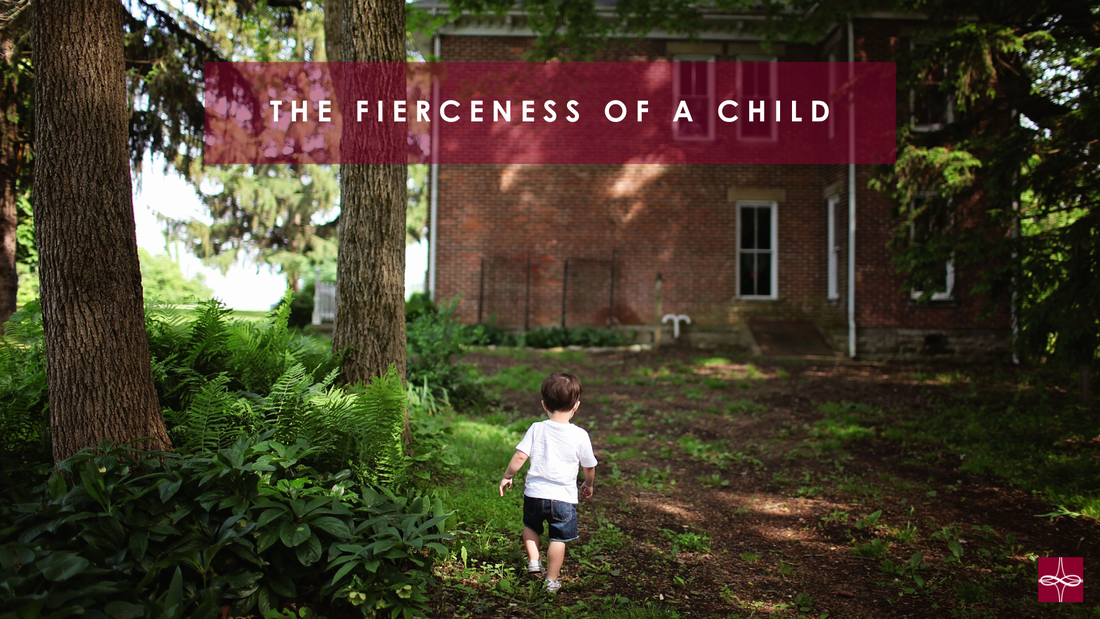

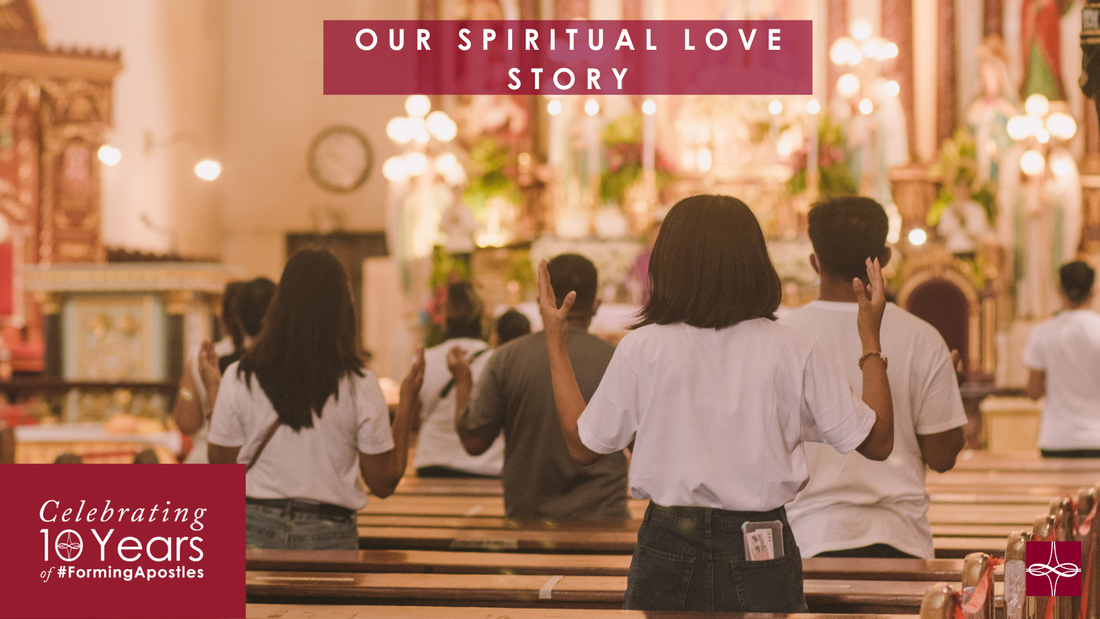
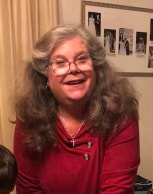
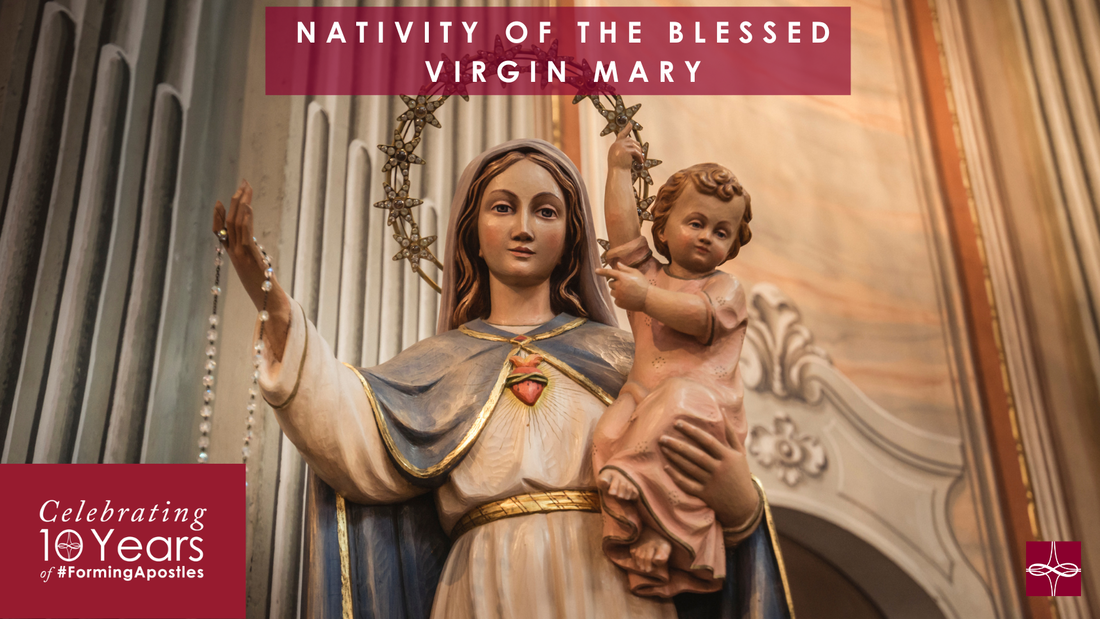
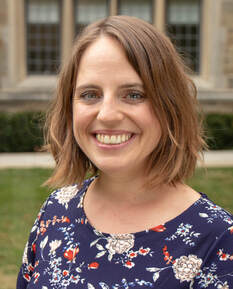
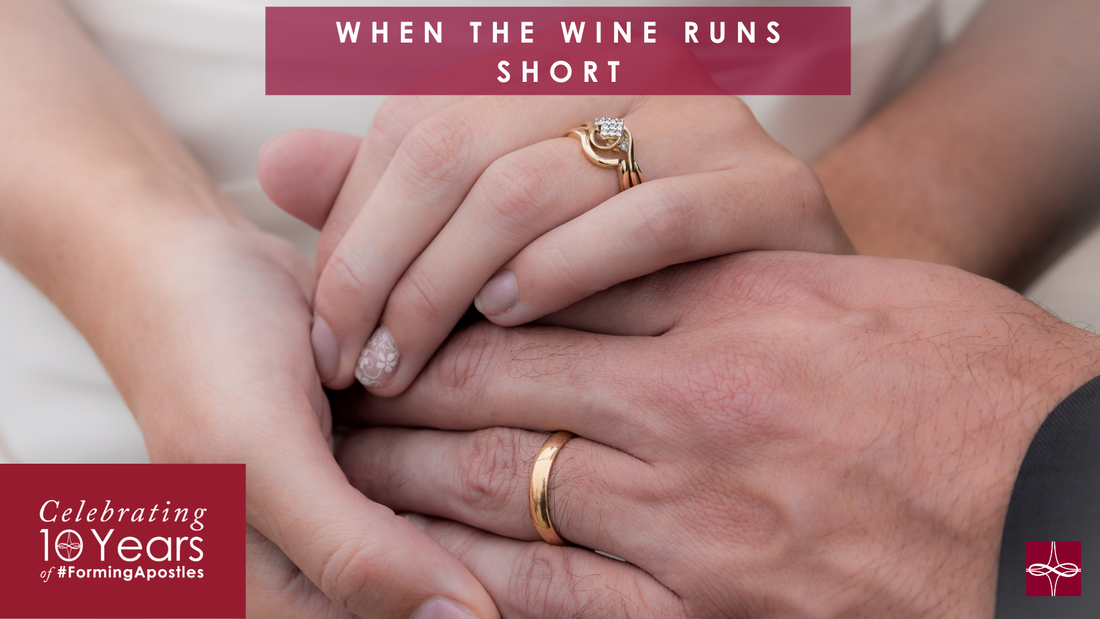




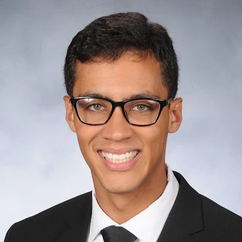
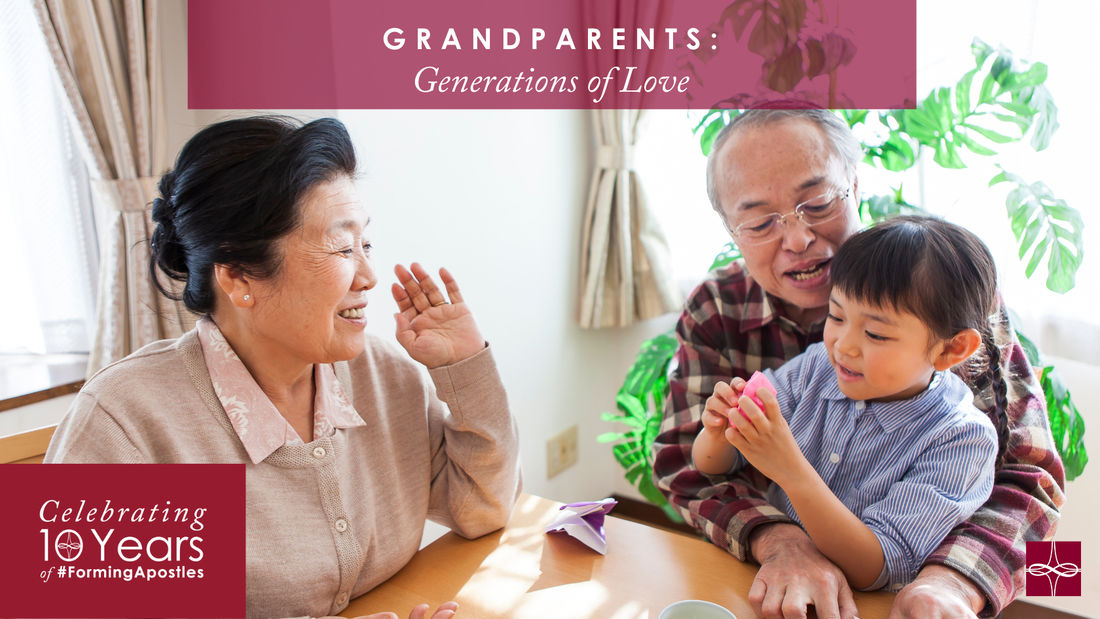
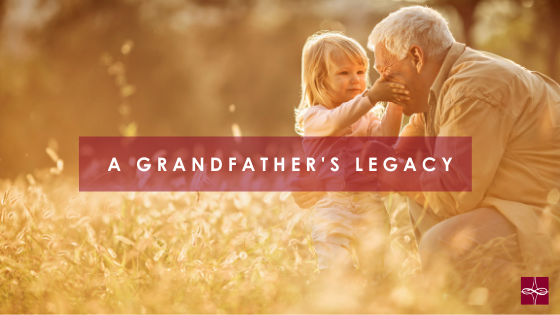
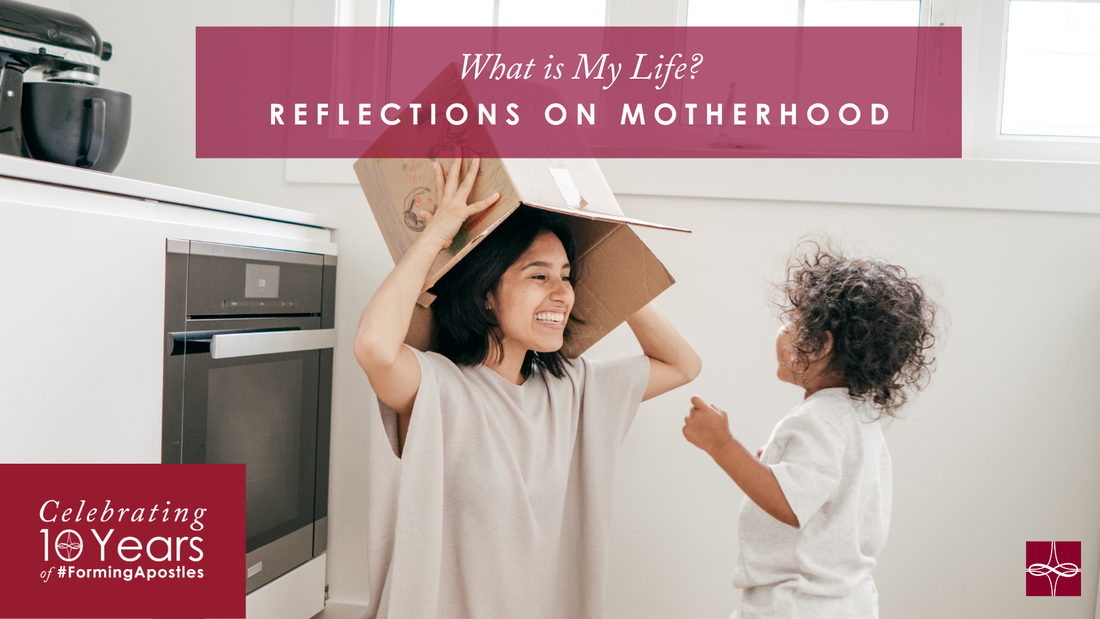
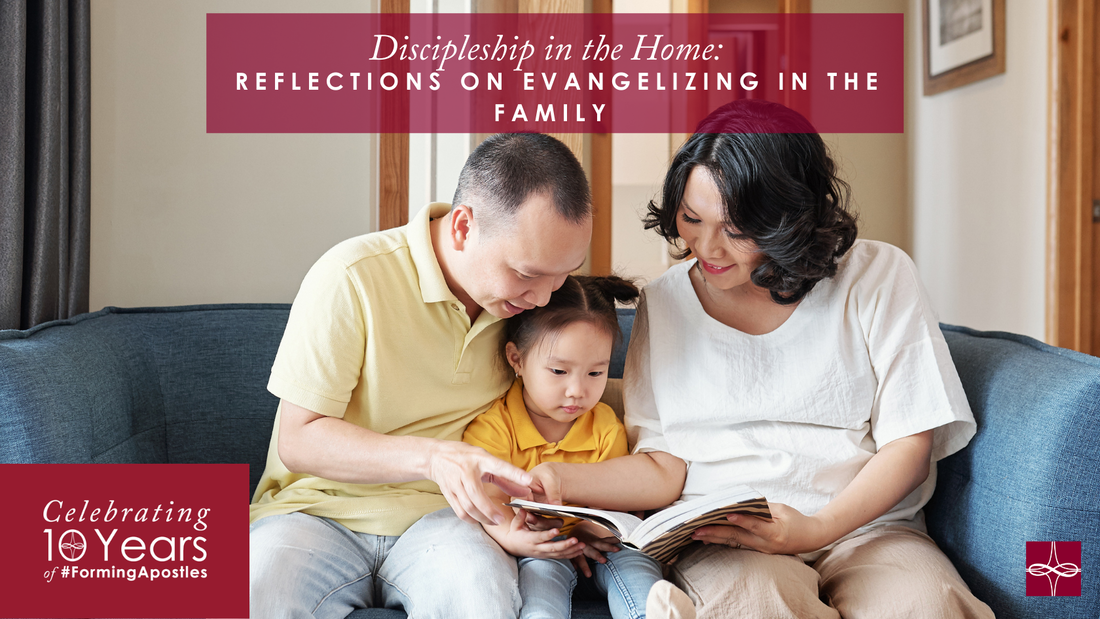
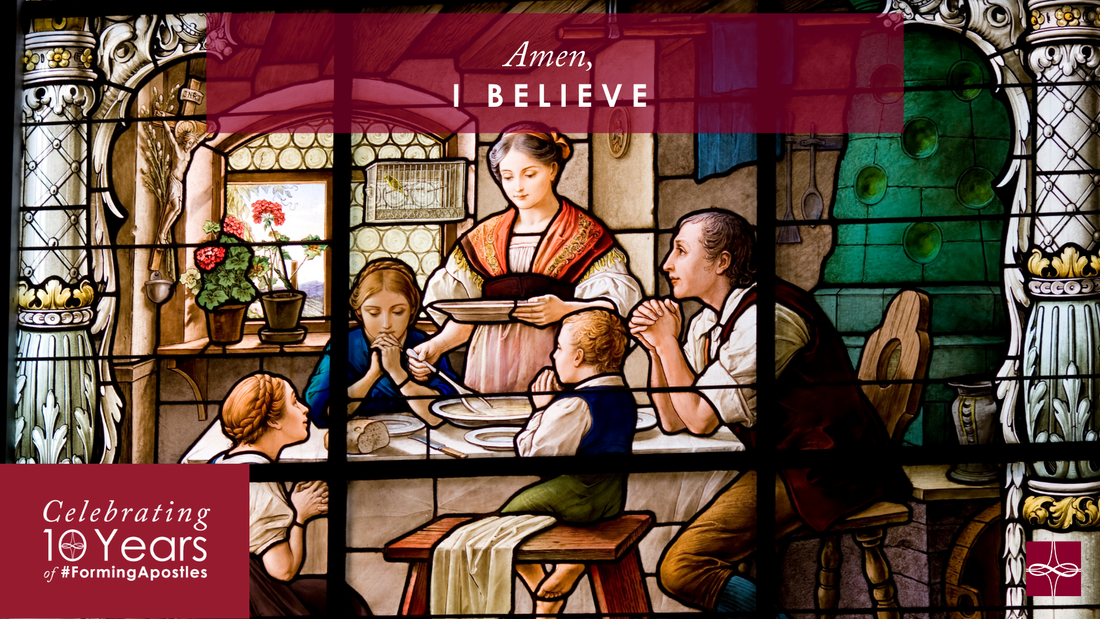


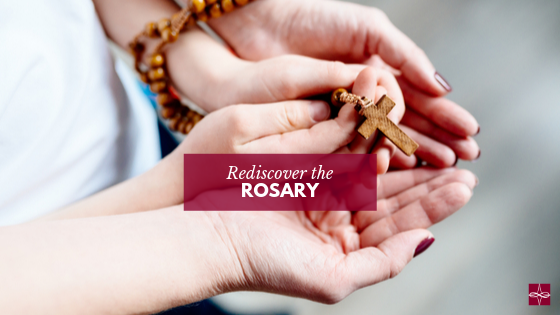

 RSS Feed
RSS Feed